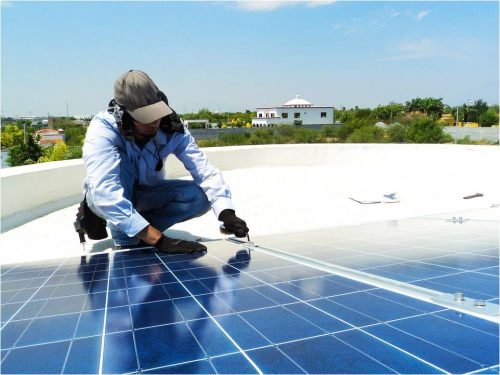The government of Canada has announced it is planning to invest nearly $1.8 billion to spur clean innovation in developing countries.
The announcement, made last week, came as the twenty-second session of the Conference of the Parties (COP 22) sat for the United Nations Climate Change Conference in Marrakech, Morocco. The conference mainly concerned itself with implementing the Paris Agreement, which came into force on 4 November.
 The new funding should help leverage private sector investment in clean technology and create sustainable green jobs. Image: pixabay
The new funding should help leverage private sector investment in clean technology and create sustainable green jobs. Image: pixabay
The $1.8 billion is part of a $2.65 billion fund pledged by the Canadian government to help nations and communities around the world contribute to a global clean economy, equip themselves to respond to climate change, and reduce pollution.
The new money is for mobilizing “private-sector support for developing countries’ efforts to transition to cleaner, more sustainable economies,” says a government statement.
Boost private sector investment in clean innovation
Canada will deliver the funds through development banks and other trusted partners with a track record in financing climate change initiatives. The intention is to boost private sector investment in clean technology, sustainable forestry, climate-smart agriculture, and climate-resilient infrastructure.
Catherine McKenna, Minister of Environment and Climate Change, says:
“This investment will help communities in developing countries create sustainable green jobs and lessen their reliance on more polluting sources of energy. And it will spur innovation by creating new opportunities around the world for the clean-technology sector.”
Carbon pricing will help countries attract right investment
Earlier this month, on the eve of the Paris Agreement coming into force, World Bank Group President Jim Yong Kim urged action if “we are to have any chance of meeting the goals enshrined in the Agreement.”
A priority, he says, is to push for “climate ambition in the development plans” of every country. The trillions and trillions of dollars that will be invested in the coming decade on infrastructure – mostly in developing countries – must back low-carbon, climate-resilient initiatives.
Carbon pricing, described as a “key ingredient” of the Paris Agreement, gives countries a tool to attract the right investment in clean innovation.
According to the World Bank, some 40 nations and over 20 cities, states, and provinces already use carbon pricing, and more are planning to do so soon. The carbon pricing schemes already in use cover about half their emissions, accounting for 13 percent of annual global greenhouse gas emissions.
Last month, the Canadian government unveiled its pan-Canadian approach to pricing carbon pollution whereby “all jurisdictions will have carbon pricing by 2018.”
